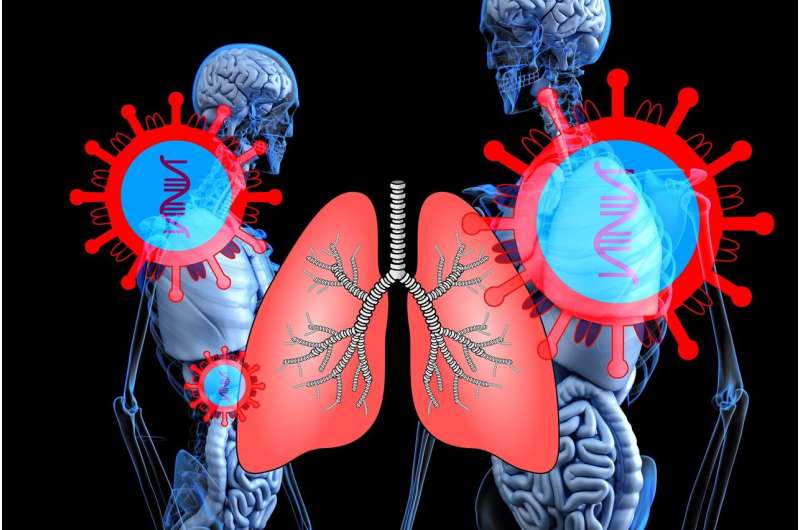Innovative Preclinical Therapy Targets ALK Protein to Precisely Kill Tumors While Protecting Healthy Cells

A novel antibody-drug conjugate targeting ALK protein shows promising preclinical results, offering precise cancer cell destruction while sparing healthy tissue, advancing potential treatments for resistant and aggressive tumors.
Researchers at Children's Hospital of Philadelphia (CHOP) have developed a promising new antibody-drug conjugate (ADC) that shows significant effectiveness against cancers expressing the ALK (anaplastic lymphoma kinase) protein on their surface. Named CDX0239-PBD, this therapy achieved complete and durable tumor regression in preclinical models of neuroblastoma, rhabdomyosarcoma, and colorectal carcinoma. Published findings in Nature Communications reveal that this targeted approach may revolutionize treatment options for various cancers.
This breakthrough could pave the way for a new class of precision medicine therapies that not only improve clinical outcomes but also minimize the side effects associated with conventional treatments. The therapy hinges on an antibody (CDX0239) designed to specifically bind to ALK proteins on cancer cells, coupled with a potent chemotherapy agent, pyrrolobenzodiazepine (PBD) dimer. Once targeted, the ADC delivers the chemotherapy directly into cancer cells, sparing most healthy tissue, and remains stable in circulation—an important factor for advancing toward human trials.
Dr. Yael P. Mossé, a pediatric oncologist and leader of the Neuroblastoma Developmental Therapeutics Program at CHOP, emphasizes that ALK mutations are the key drivers in hereditary and some sporadic neuroblastomas. Because ALK is the only mutated oncogene in neuroblastoma that can be therapeutically targeted, this new approach offers a highly selective treatment option that could reduce toxicity.
The research conducted by Alberto D. Guerra, MD, Ph.D., and colleagues combined the ALK-specific antibody with PBD, a powerful cytotoxic compound. This combination directs the toxin specifically to tumor cells expressing ALK, inducing DNA damage and activating tumor cell death pathways. Importantly, the ADC demonstrated stability and effectiveness in preclinical models, including cases resistant to existing ALK inhibitors like lorlatinib, as well as tumors with genetic features such as TP53 mutations or MYCN amplification.
Multiple doses of CDX0239-PBD successfully eradicated tumors and resulted in 100% survival rates across diverse drug-resistant models. The therapy also exhibited a notable ‘bystander effect,’ damaging neighboring tumor cells that did not express ALK, further enhancing its efficacy.
Looking ahead, the team is working on optimizations necessary for regulatory approval and clinical testing. Efforts are underway to develop antibodies with improved tumor penetration and to plan for initial human and pediatric trials within the next two years. Dr. Mossé highlights that this approach exemplifies how precision medicine moves beyond one-size-fits-all strategies, aiming for targeted therapies that increase potency while reducing adverse effects—ultimately hopeful to improve survival and quality of life for patients with aggressive cancers.
For more details, see the original study by Guerra et al., published in Nature Communications, DOI: 10.1038/s41467-025-62979-1.
Stay Updated with Mia's Feed
Get the latest health & wellness insights delivered straight to your inbox.
Related Articles
Native Tribal Groups Declare Sovereignty Amid Federal Crackdown on Gender-Affirming Healthcare
Native American tribal communities are asserting sovereignty to protect LGBTQ+ rights and access to gender-affirming healthcare amidst federal and state restrictions, emphasizing cultural identity and health equity.
Media Depictions of Home Care and Their Impact on Perceptions of Older Adults
A Finnish study reveals how media images shape perceptions of older adults in home care, often portraying them as passive and vulnerable, which can impact policy and societal attitudes toward aging and care.
New Hope for Pulmonary Fibrosis: Nerandomilast Shows Promise in Clinical Trials
New clinical trial results reveal that nerandomilast significantly slows the progression of pulmonary fibrosis, offering hope and new treatment options for patients with this serious lung disease.
Understanding HPV: A Common Virus and Its Link to Cancer
HPV is a widespread virus affecting most people at some point, with certain strains linked to various cancers. Learn about the risks, transmission, and prevention of HPV in this comprehensive overview.



